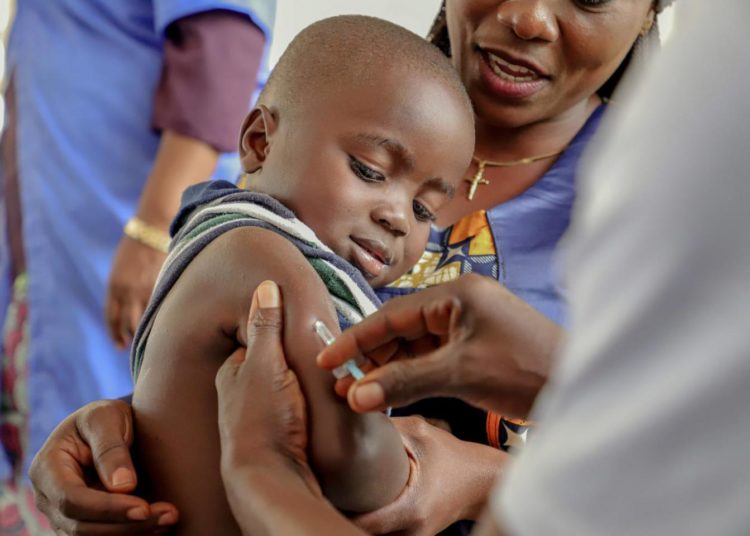Nigeria bears the highest burden of unvaccinated children in the world, with an estimated 2.1 million “zero-dose” children, those who have not received a single routine vaccine, according to the United Nations Children’s Fund (UNICEF).
UNICEF Health Officer, Bashir Elegbede, said vaccines as “lifesavers” essential for children’s survival and development. He revealed that states in Nigeria’s conflict-affected northeast, particularly Borno and Yobe, account for a disproportionately high number of unvaccinated children.
Elegbede, who spoke recently at a media dialogue in Damaturu, Yobe State, said “Globally, sadly, Nigeria has the highest burden of zero-dose children. A number estimated to be 2.1 million. 10 of the 200 high-priority local government areas (LGAs) are in the northeast, two in Yobe and eight in Borno.”
He explained that children who remain unvaccinated face significantly higher risks of contracting vaccine-preventable diseases like polio, measles, meningitis, yellow fever, and hepatitis. These children are typically found in hard-to-reach rural areas, conflict zones, urban slums, and underserved communities.
To address the crisis, UNICEF has partnered with the Yobe and Borno State Governments and deployed several targeted immunisation campaigns. In 2024, around 20,000 zero-dose children in Yobe were vaccinated, while 145,000 were reached in Borno.
In March and April 2025, an additional 165,000 children across the northeast were targeted under the “Big Catch-Up” rounds, with 95 per cent successfully vaccinated.
The Yobe State Commissioner for Health, Dr. Mohammed Lawan Gana, emphasised the critical role of community ownership in the state’s immunisation drive. “In Northern Nigeria, especially in places like Yobe, traditional institutions remain integral to community life. They are not just symbolic leaders, they are the system,” he said.
Dr. Gana stressed that every fixed and outreach immunisation session must be carried out without fail, adding that health facility performance must be monitored closely to avoid lapses that put children at risk. He also highlighted ongoing strategies including house-to-house visits and outreach to underserved communities, in partnership with local leaders.
“Many of us are tired of reporting disease outbreaks. We know what to do and how to do it. What’s left is to act decisively and together,” Gana said.
Furthering the state’s commitment, Director of Disease Control at the Yobe State Primary Health Care Management Board, Dr. Umar Chiroma, outlined the state’s three-pronged strategy involving fixed-site immunisation, outreach, and mobile teams.
We’ve got the edge. Get real-time reports, breaking scoops, and exclusive angles delivered straight to your phone. Don’t settle for stale news. Join LEADERSHIP NEWS on WhatsApp for 24/7 updates →
Join Our WhatsApp Channel










